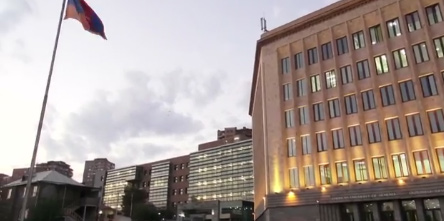
NATO and the Caucasus: Engagement in a Changing Security Environment
< 1 min read YEREVAN, Armenia – On May 4, 2015, the American University of Armenia (AUA) Political Science and International Affairs (PSIA) program held a seminar on ‘NATO and the Caucasus: Engagement in a Changing Security Environment.’ The speaker was William Lahue, Head of NATO Liaison Office in Georgia and NATO Liaison Officer in the Region of the South Caucasus. The event was part of a series of PSIA seminars that are held every Monday from 3:30 – 5:00 PM.
YEREVAN, Armenia – On May 4, 2015, the American University of Armenia (AUA) Political Science and International Affairs (PSIA) program held a seminar on ‘NATO and the Caucasus: Engagement in a Changing Security Environment.’ The speaker was William Lahue, Head of NATO Liaison Office in Georgia and NATO Liaison Officer in the Region of the South Caucasus. The event was part of a series of PSIA seminars that are held every Monday from 3:30 – 5:00 PM.
The speaker presented NATO’s modus operandi, particularly with respect to the decision making process and the prevalence of allied nations. He stated that NATO programs are a reflection of the different strategic priorities of the 28 member allies. Beyond alliance, the speaker also commented on NATO’s possible partnership with other countries and the advantages it might offer through this partnership.
Lahue also discussed different perceptions of NATO and the misconceptions that may exist with respect to policy implementation channels. Lahue concluded that NATO’s decision making process should be taken into consideration when discussing NATO-Caucasus relations. NATO does not impose its own strategic choice when working with partners in the Caucasus, emphasizing that a NATO partnership offers many advantages to non-member nations as well.
Founded in 1991, the American University of Armenia (AUA) is a private, independent university located in Yerevan, Armenia and affiliated with the University of California. AUA provides a global education in Armenia and the region, offering high-quality, graduate and undergraduate studies, encouraging civic engagement, and promoting public service and democratic values.
